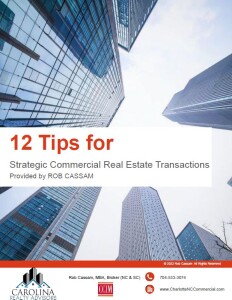This month’s newsletter has just been released! Check out the latest tips for tenants and users of commercial real estate space.
In this issue
- Important Variations in the Shopping Center Lease
- Important Information For The New Property Manager
- Investing In Land For Long-Term
- Lease Negotiations With Large Corporations
- A Comfort Zone With Loans and Investments
- How To Anticipate Problems In Choosing Investment Property
When leases for shopping centers are being drafted, they can be more difficult than most other commercial leases. In a shopping center, the owner wants the leases to be as uniform as possible, but knows that each lease must have variations to meet the individual tenant’s particular problems in business and in certain size or shaped spaces. Here are some suggestions of items that should be covered in your shopping center leases. There could be many more depending on each property……(more)
There may be lengthy negotiations between the owner of a property and the management company before a management contract is signed. When the management plan has been worked out between them, the management company is hired and the manager takes charge of the property. At this time the manager must collect great amounts of information necessary to manage and control the property. Some should have been available from the owner, but all files must be updated and appropriate information collected, such as:……(more)
Land is always a good investment for the long term. In past years when investors made real estate investments, one consideration was the tax shelter of certain investments. Now, with fewer shelters, real estate investments must make sense as a dollars and cents return on capital, and must stand alone as a good business move. Land has never been a tax advantaged investment and should be worth considering as a way to increase wealth. The trend has always been up. In most cases, the land investor spends money each year with virtually no income from the investment. He has expenses of property taxes, clean-up and maintenance costs, expenditures for travel to check on the property. The opportunity for income from the land is minimal. When an investor puts money into land it is for the potential payoff when the land is sold. It is a very worthwhile investment when the land’s price skyrockets and the “cheap” land becomes highly treasured property……(more)
A few years ago, senior corporate managers were able to make major real estate decisions by themselves. Now, a negotiating team will negotiate leases. This team may consist of legal counsel, finance department representatives, outside specialists such as real estate brokers or tenant representatives, design and engineering consultants, and others…….(more)
Each investor has a “comfort zone” about loans. The leverage seeker wants the largest loan that is practical. Others may have experience or training that calls for no loans at all. They must have the property free and clear. Most of us have a loan comfort zone somewhere between these extremes. Nearly everyone accepts the idea of some sort of mortgage. The use of OPM (other people’s money) makes sense. The comfort in loans may affect the type of investment. Many of these “free and clear” owners prefer land as the investment. They want no improvements on it, just the bare land……..(more)
No single property can fit all of the investment goals and rules an investor has set. Even if the investor tried to build a property to specifications, he would find some things “not quite right”. The investor is, therefore, wise to anticipate problems and have some basic strategies for dealing with them. Here are some suggestions to help the investor devise other approaches to meet special needs:……..(more)




